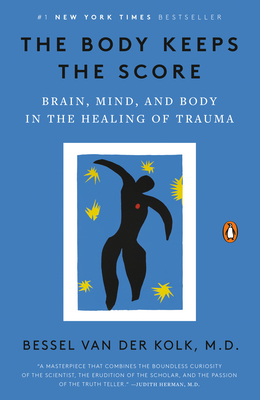
Why Therapy Works: Using Our Minds to Change Our Brains (Norton Series on Interpersonal Neurobiology)
Description
The story of why psychotherapy actually works.
That psychotherapy works is a basic assumption of anyone who sees a therapist. But why does it work? And why does it matter that we understand how it works?
In Why Therapy Works, Louis Cozolino explains the mechanisms of psychotherapeutic change from the bottom up, beginning with the brain, and how brains have evolved—especially how brains evolved to learn, unlearn, and relearn, which is at the basis of lasting psychological change.
Readers will learn why therapists have to look beyond just words, diagnoses, and presenting problems to the inner histories of their clients in order to discover paths to positive change. The book also shows how our brains have evolved into social organs and how our interpersonal lives are a source of both pain and power. Readers will explore with Cozolino how our brains are programmed to connect in intimate relationships and come to understand the debilitating effects of anxiety, stress, and trauma.
Finally, the book will lead to an understanding of the power of story and narratives for fostering self-regulation, neural integration, and positive change.
Always, the focus of the book is in understanding underlying therapeutic change, moving beyond the particular of specific forms of therapy to the commonalities of human evolution, biology, and experience.
This book is for anyone who has experienced the benefits of therapy and wondered how it worked. It is for anyone thinking about whether therapy is right for them, and it is for anyone who has looked within themselves and marveled at people's ability to experience profound transformation.
Praise for Why Therapy Works: Using Our Minds to Change Our Brains (Norton Series on Interpersonal Neurobiology)
Why Therapy Works is a tour de force. Too often today the public thinks that one can read a book or watch a documentary and be transformed psychologically. Unfortunately, that is not how the human mind works. Humans require other minds for change and change is hard. We are ‘embodied and embedded’ in an interpersonal matrix. To understand the human experience and create change, we must move from a single-skull understanding to an intersubjective context of two or more minds. Louis Cozolino explains this phenomenon in a manner easy to digest, taking the reader from the evolutionary heritage of human psychology to an understanding of the experience of psychotherapy applied in common clinical circumstances.
— Drew Pinsky, MD, Internist/Addictionologist and Host of Dr. Drew on HLN
[A] wonderful read. . . . Cozolino’s exploration of neurological, evolutionary, and psychodynamic understandings of human distress will appeal to an audience far wider than the psychotherapeutic community . . . All good books, in this domain, inform and challenge the reader. Few, however, entertain and engage the reader as well as Cozolino does. . . . I came away from reading this book more knowledgeable about the current state of neuroscience and its applicability to psychotherapy.
— PsycCRITIQUES
From understanding brain programming and evolution to navigating the difficulties of anxiety and trauma, Why Therapy Works addresses a wide range of human behavior and phenomena from a psychological perspective. Students in the field will find this work helpful and illuminating, while those curious about the often mysterious mechanisms of therapy will find answers to their questions. . . . The book flows naturally and could easily be read in one sitting given its clean and accessible writing. . . . [U]seful for students in the field of psychology and those looking to determine if therapy is right for them.
— American Reference Books Annual
[A] valuable source for showing how academic concepts can be applied in therapeutic treatment. Cozolino’s distinguished career as both a professor and mental health clinician qualify him as an expert in bridging the gap between theory and practice. In terms of accessibility, the book is a quick read that covers a lot of ground in a short space. With its helpful (and often humorous) overviews of key theories, plus its innovative fusion of biology, behavior, and human evolution, it will no doubt prove beneficial to both lay readers and mental health practitioners.
— Psych Central
Written for the layperson, Louis’ exposition will appeal to many therapists as a great addition to their knowledge of neurobiological factors at play in psychotherapy.
— The Neuropsychotherapist
[A]n interesting read for anyone who has wondered about the mechanics of therapy and why it seems to work, no matter the therapeutic approach.
— Greater Good
Why Therapy Works underscores the importance of understanding psychotherapy’s mechanisms of action beyond the conventional therapeutic philosophies and metaphors. . . . With his rich, personalized commentaries, unassuming analyses, and purposeful characterization of evidence-based science as ‘another metaphor’ (one that offers the best ‘nonshaming explanation’ for human struggle), Cozolino has . . . achieved a thorough, bottom-up explanation of the mechanisms of psychotherapeutic change.
— Somatic Psychotherapy Today
[A]n authoritative guide. . . . Anyone interested in therapy and the brain will find much compelling information here . . . . [A]n intriguing look at how anxiety, stress, and trauma affect the brain and . . . how psychologists can help their patients ‘connect and heal.’
— Booklist
There are so many important concepts and ideas, that I found myself underlining and highlighting sections. I was intrigued with Cozolino’s concept that we can change our brain. And, his explanations about attachment and healing are excellent. . . . [H]e offers his own experiences to illuminate his ideas. This makes him human, believable, and likeable. . . . I look forward to rereading this book. It will be useful to review reference-specific issues. I recommend it to both colleagues and students.
— The Milton H. Erickson Foundation Newsletter
[W]ill be useful for anyone seeking to better understand the inner workings of therapy.
— Publishers Weekly
A beautiful book about the art and science of psychotherapy, focused on the process of attachment and interpersonal attunement. Louis Cozolino shows how our brains are fundamentally wired to function together with those of others in complex social systems, and that most forms of human suffering are the result of a breakdown in interpersonal synchrony, which therapy can help to repair. Written both for general readers and students of therapy, this book highlights what we have learned about the neurobiology of fear, shame, and relationships to eloquently demonstrate how psychotherapy can heal old hurts and restore self-leadership, love, and the capacity to feel fully alive.
— Bessel van der Kolk, MD, Medical Director, Trauma Center at Justice Resource Institute; Professor of Psychiatry, Boston University School of Medicine














